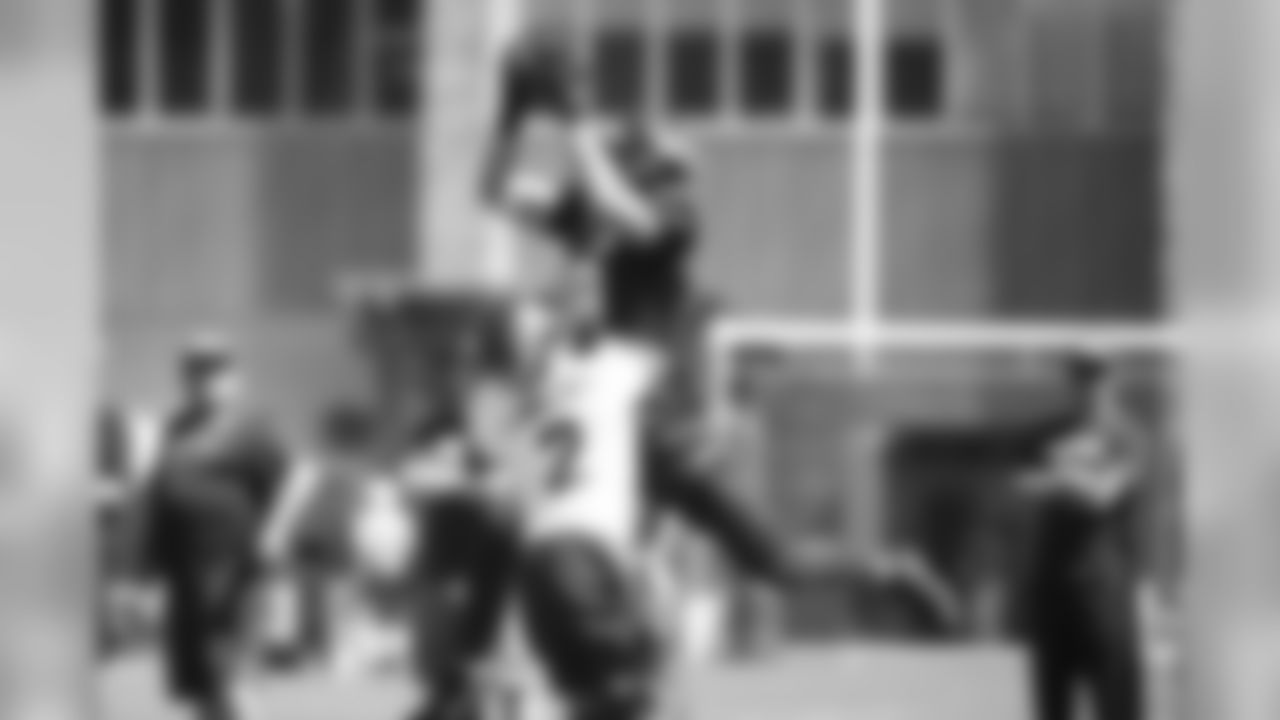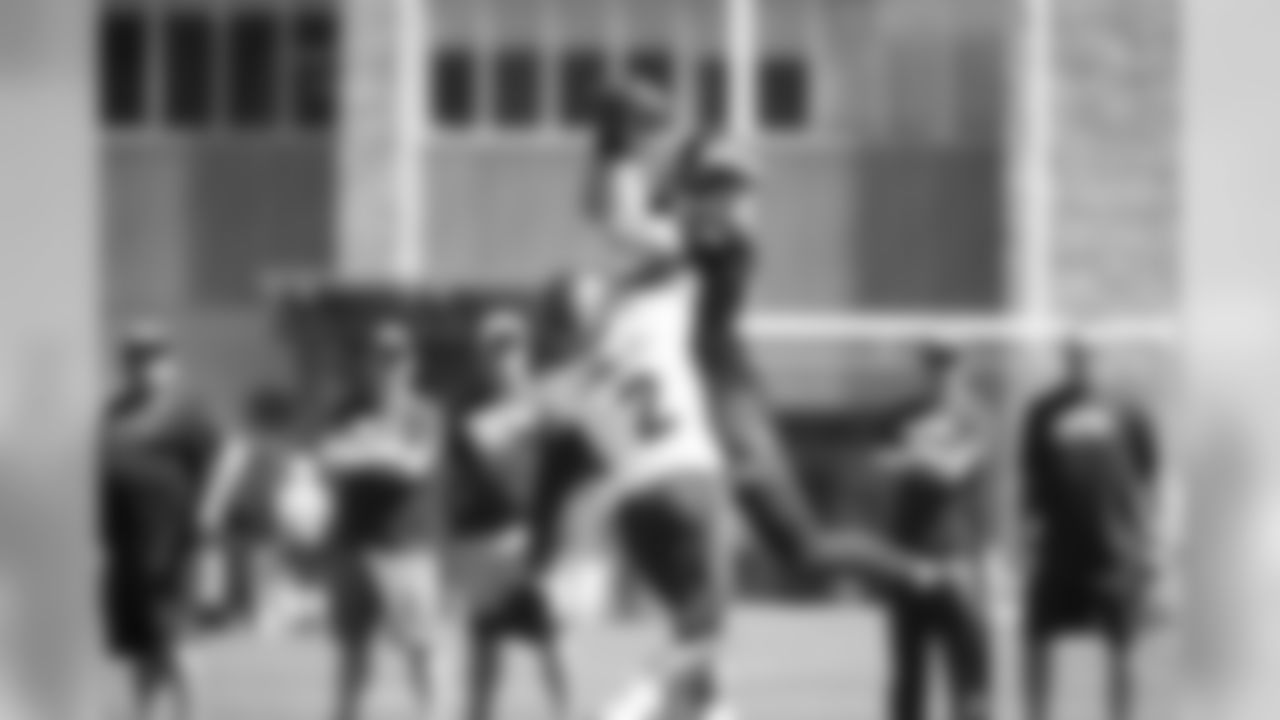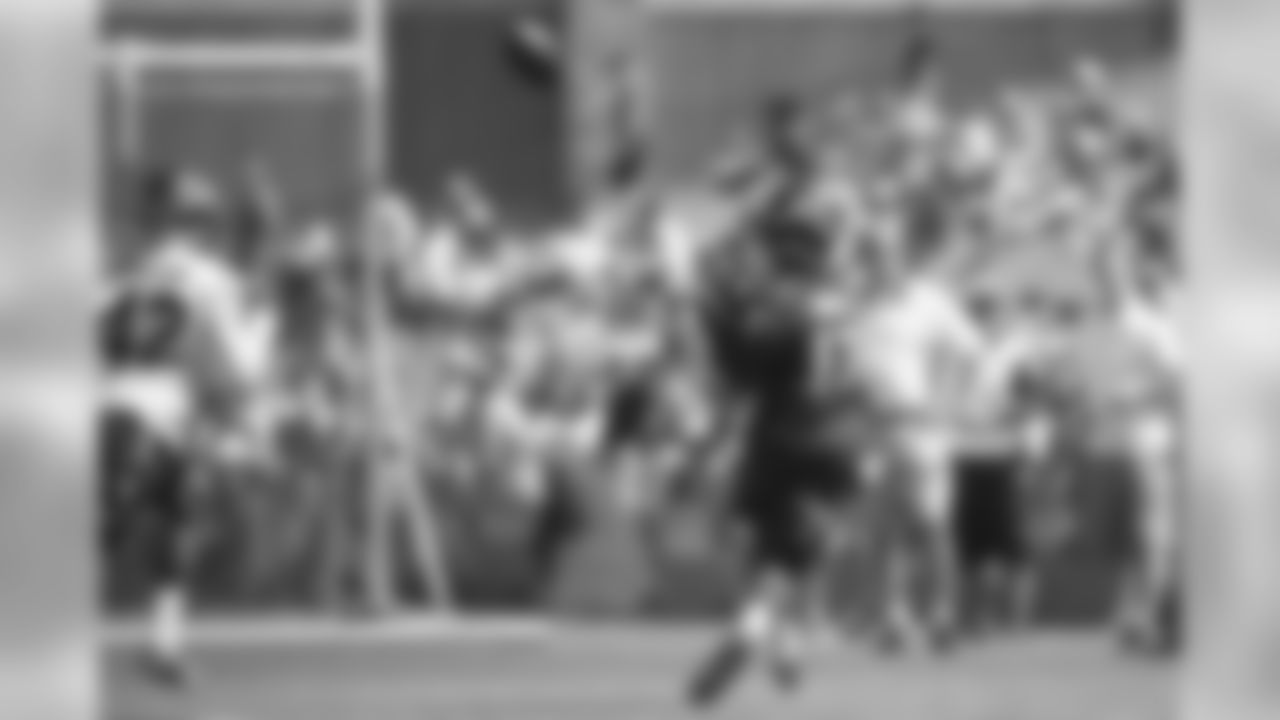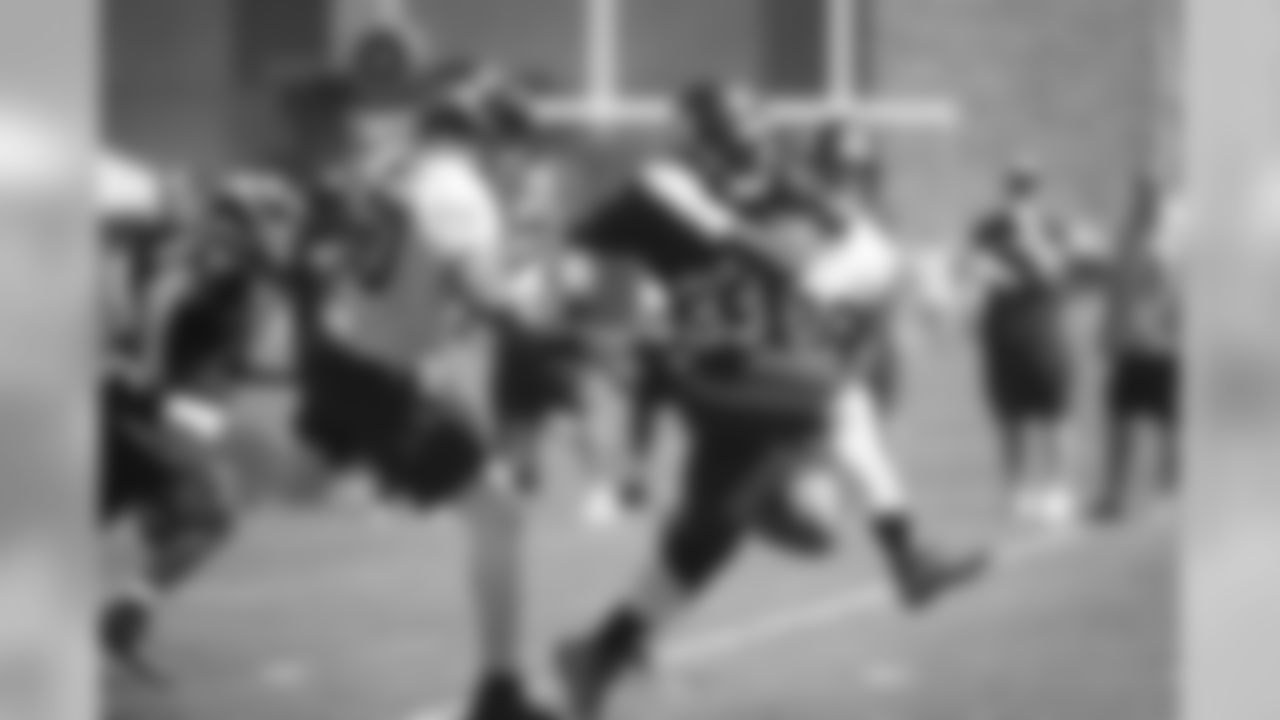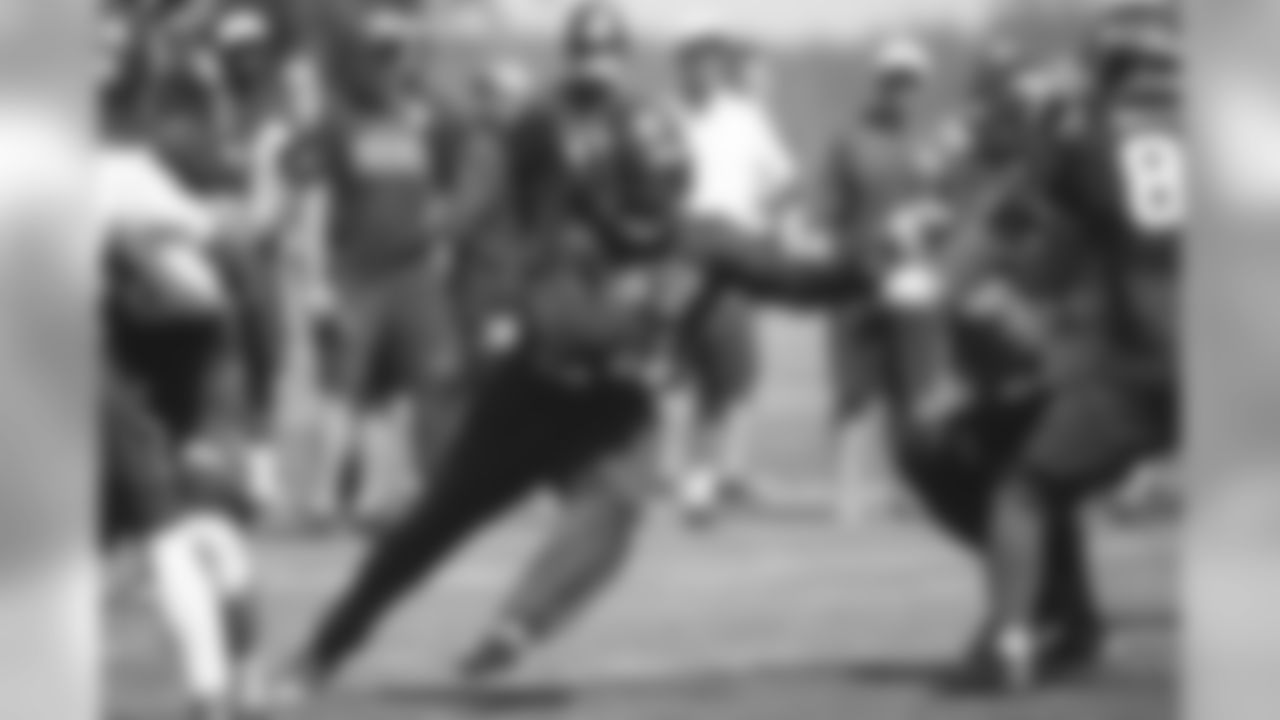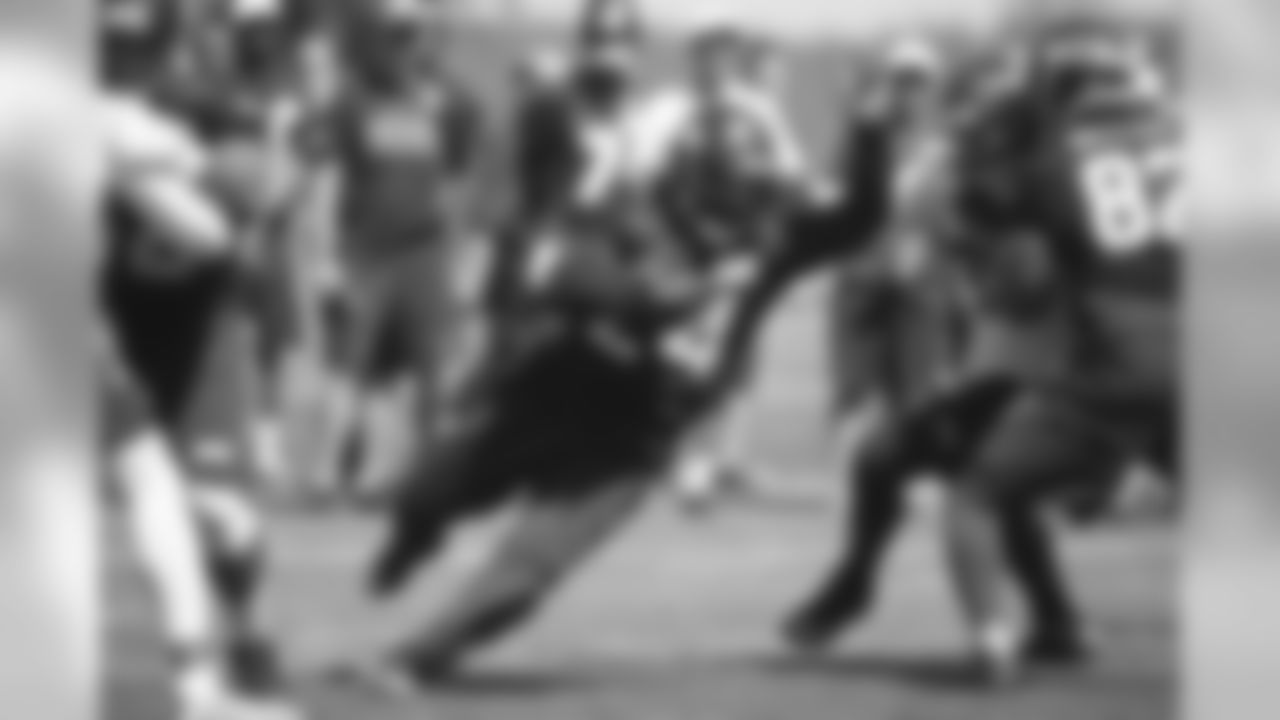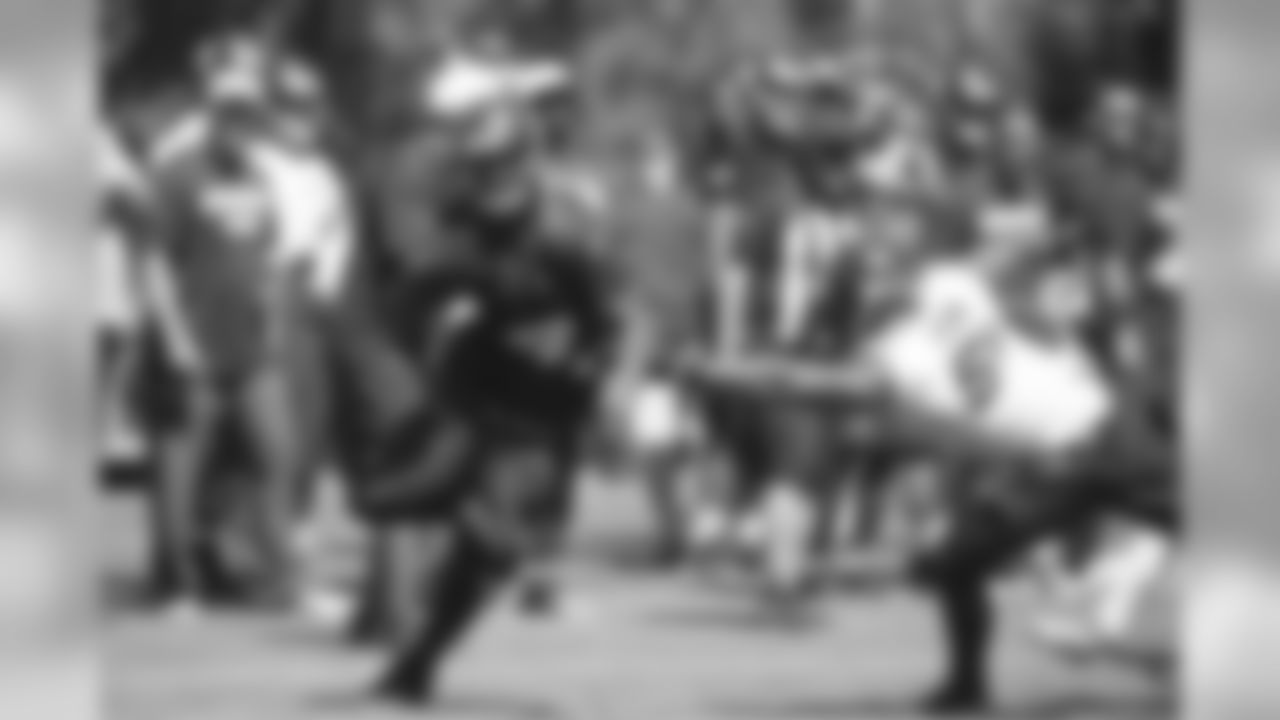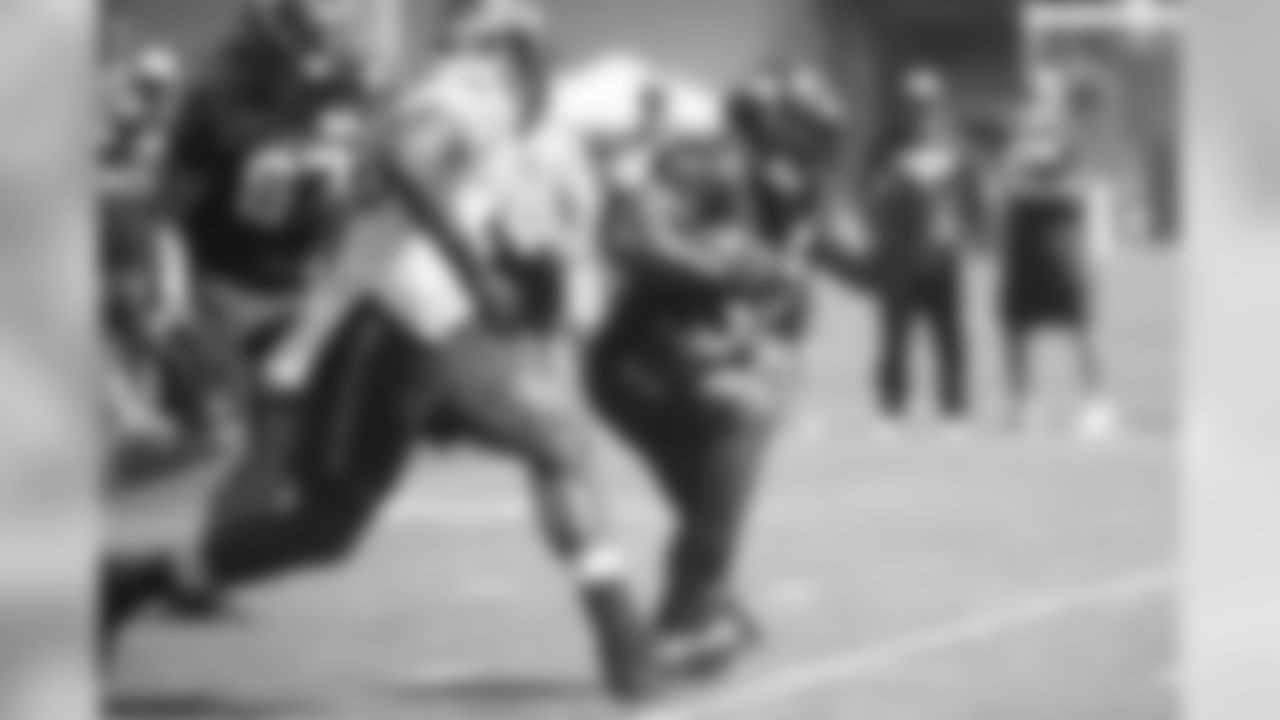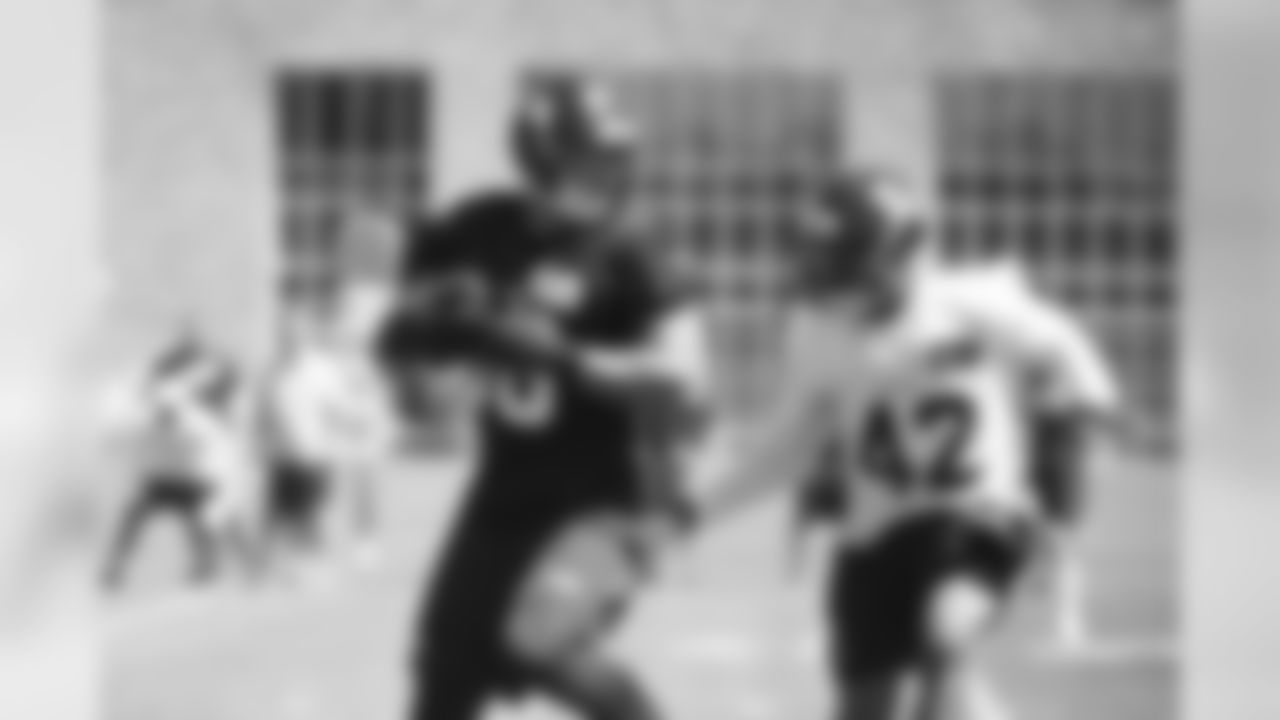Following day two of Seahawks training camp at Renton's Virginia Mason Athletic Center held in front of a capacity-crowd of 2,600 fans, Darrell Bevell took time to meet with the media. Here's three things we learned from the Seahawks offensive coordinator, a conversation that centered around Seattle's wide receiving corps.
1. Tyler Lockett Is More Than A Return Specialist
Much of the initial talk surrounding rookie Tyler Lockett, who the Seahawks traded up to select in the third round (No. 69 overall) of the 2015 NFL Draft, focused on his ability as a kick and punt returner, positions Seattle expects him to own once the regular season opens. But through the first couple days of training camp, Bevell said he's realized he has much more than a return specialist on his hands.
"I think me, I wasn't necessarily thinking where he could fit in as a wide receiver and he's come in and he's done a great job," Bevell said of the former Kansas State standout who was recently named Big 12 Male Athlete of the Year. "He's going to be a big factor at wide receiver as well. He's going to be able to play in the slot. He makes big plays. He's got great quickness. He's got great speed. He can make people miss. So it's something that quickly, after watching him like the first day, it's like, 'Oh, this guy's not just a kick returner. He's going to be able to play wideout.'"
2. The Challenges Young Wideouts Face
Of the 12 wide receivers listed on Seattle's 90-man roster, three of them are rookies - Lockett, Deshon Foxx, and Kasen Williams. Four are in their second year - Paul Richardson, Chris Matthews, former Arena League Football player Douglas McNeil III, and Kevin Norwood. A fifth, Kevin Smith, has spent time on Seattle's practice squad.
Collectively, the group has flashed in the early portions of camp, a relatively normal occurrence in the early stages of a new season. The challenge for a young wideout comes when they're asked to carry their play from the practice field to plays that matter, as in the regular season. Bevell shed some light on what separates those who succeed from those who don't.
"I think consistency is number one," said Bevell. "I think trust is another one - the quarterback can trust where they're supposed to be, when they're supposed to be there. Durability always is a factor. All these guys that get to this level all have great talents. Some have different talents and that's my job to be able to find what they're strengths and weaknesses are and be able to utilize their strengths, minimize their weaknesses. We'll do that, but I think those things are what would help set them apart. We're a program that's played a lot of young guys. We're not scared to kind of make a move and let the young guys go ahead and play."
One of the better examples of when this coaching staff has let young wide receivers play came in 2011, when Doug Baldwin, an undrafted rookie out of Stanford, led the Seahawks in receiving. Baldwin, of course, is now a starter for the Seahawks and led the team in receiving last season. The biggest challenge, Bevell said of young players looking to stick, is gaining a full understanding of the playbook.
"They need to be able to master the playbook and have a good grasp of that because what usually ends up happening if they don't have a grasp of it is they can't let their abilities take over," said Bevell. "When they have a good grasp of it and they can pick it up and they're not thinking about the playbook, then their ability is really able to show up. So they get to that point where they're comfortable enough and they're not thinking on every thing they're doing, every step they're taking, so that we can see their ability, their hands, their catches, their change of direction and all those things take over."
3. There's No Prima Donnas
On top of the aforementioned Lockett, Baldwin, Matthews, and Richardson, there's a good amount of wideouts on Seattle's roster that also partake in special teams. Jermaine Kearse, a starter last season opposite Baldwin, has an active role in the third phase of the game. The speedy Ricardo Lockette made a name for himself for his ability to lay a punishing hit covering kickoffs.
"Throughout that group there's no prima donnas," Bevell said of the wide receiver-special teams connection. "They go out, they ball out, they want to play, and so you can see that from the first guy to the second guy. So really, all of our wideouts have kind of taken to that on special teams and you'll see every one of those guys practicing over there."
Before the start of the regular season, the Seahawks will be forced to trim what's currently a 90-man roster down to 53. Players know becoming a standout on special teams is often the difference between making the cut and finding yourself looking for a job elsewhere.
"All those guys are willing to play," Bevell added. "And they know that that's kind of the thing that can push it over the edge."
It was a beautiful, sunny day at Day 2 of Seahawks Training Camp presented by Bing.
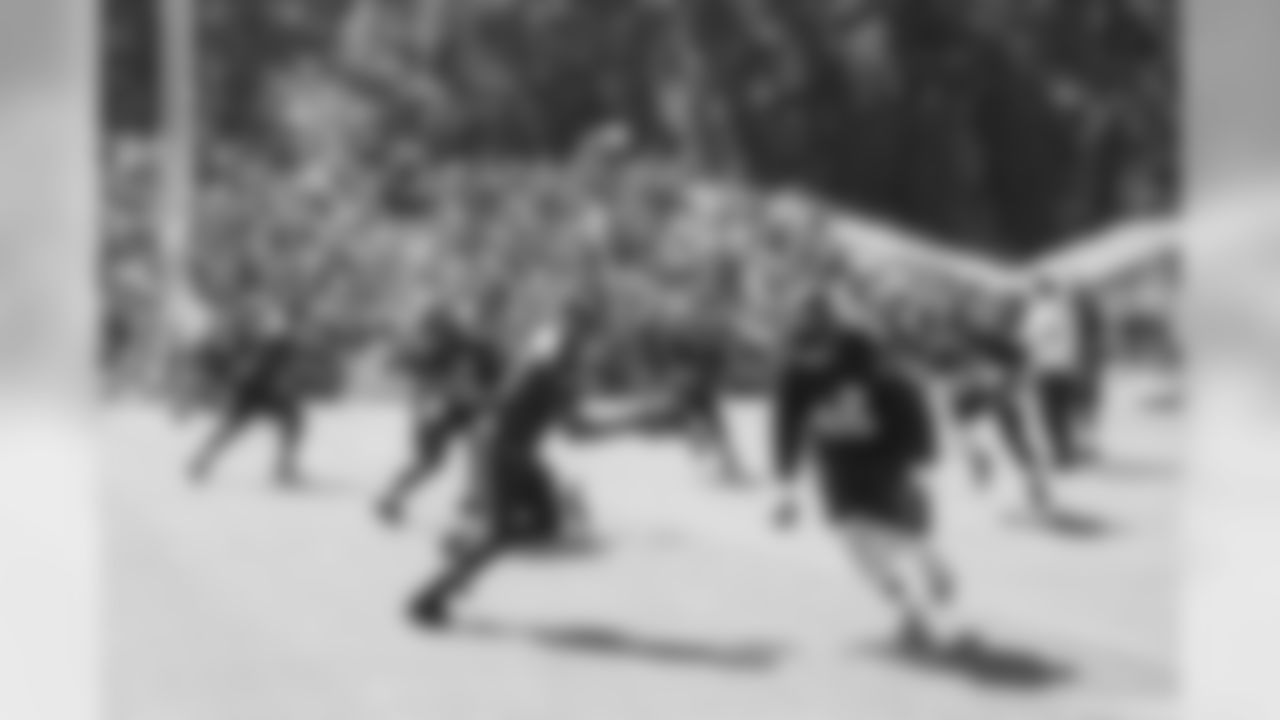
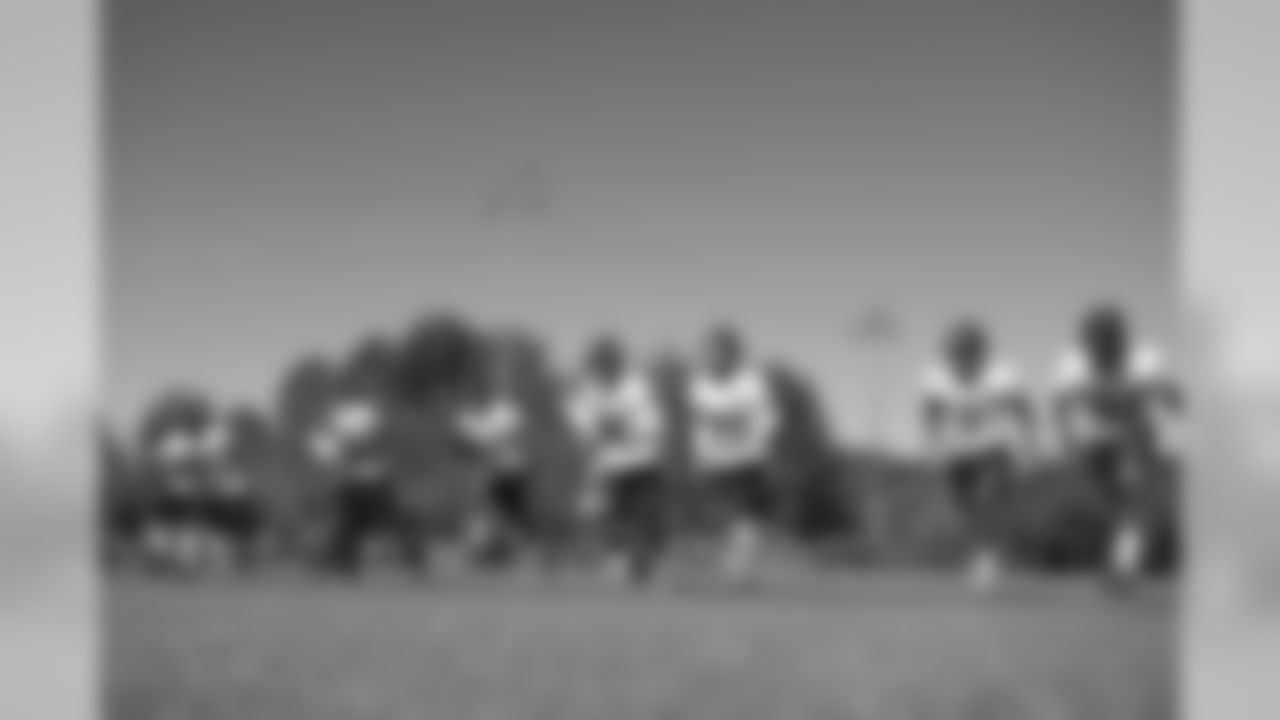
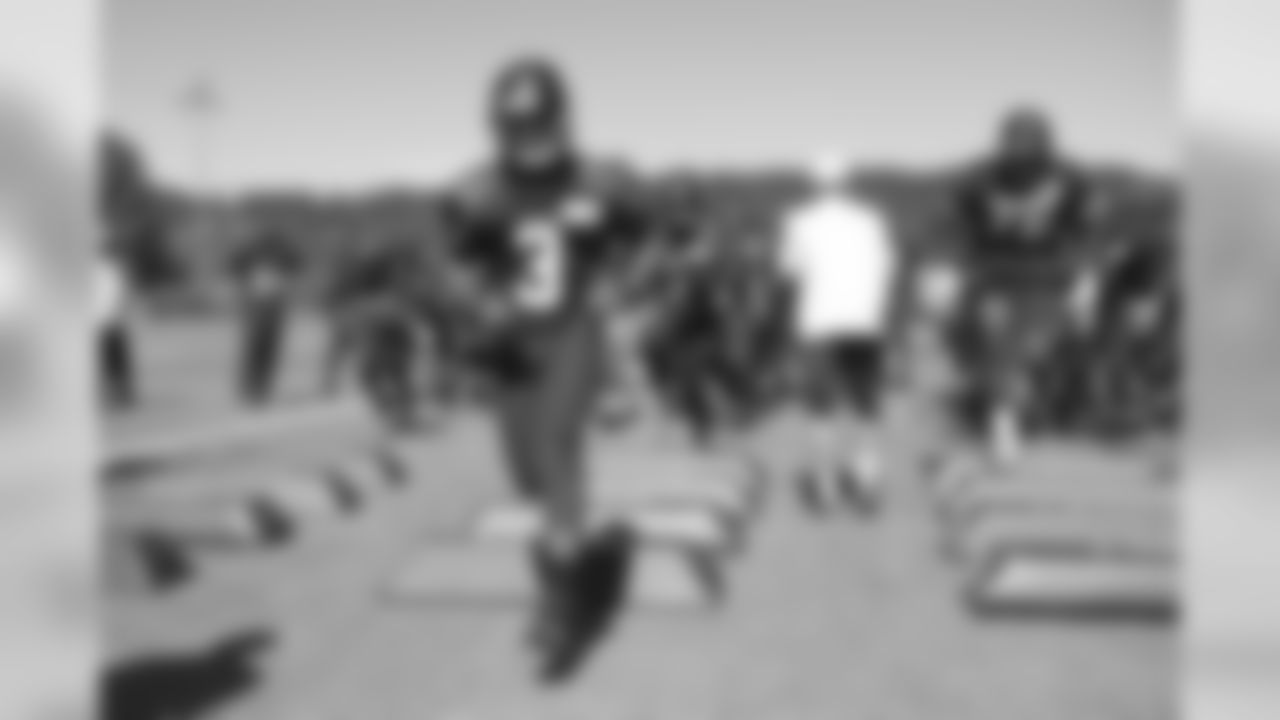


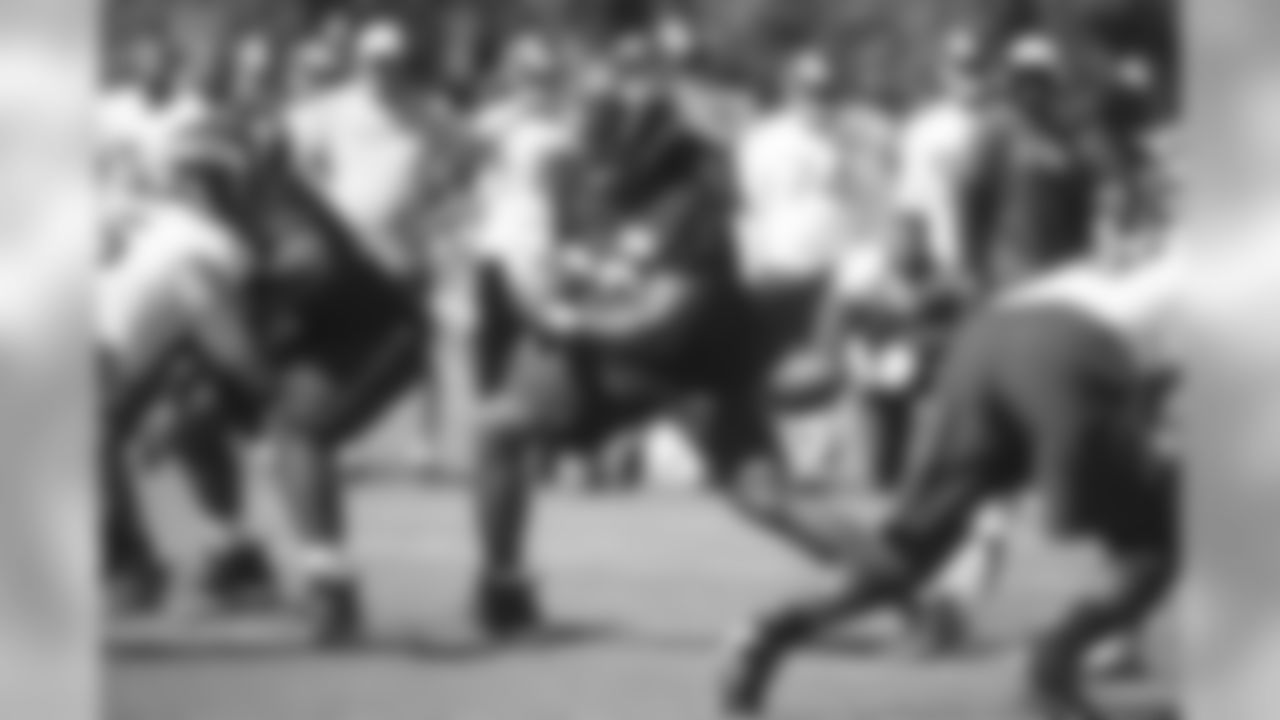
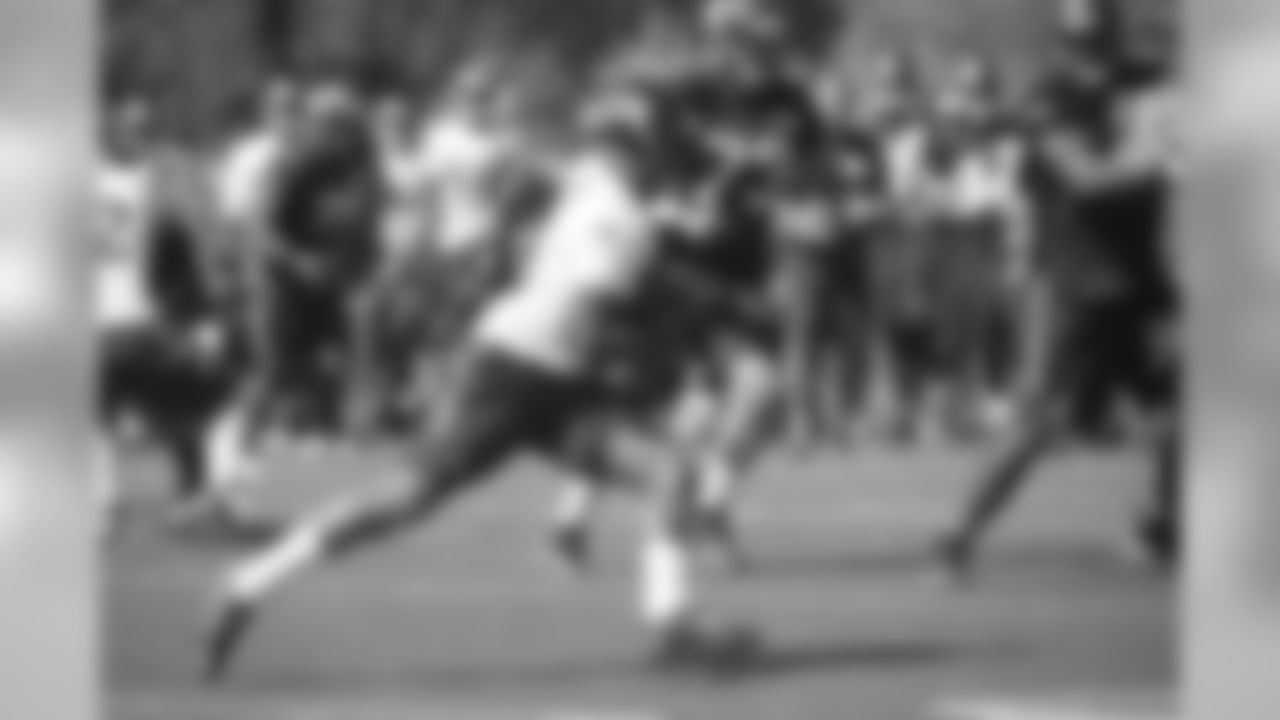


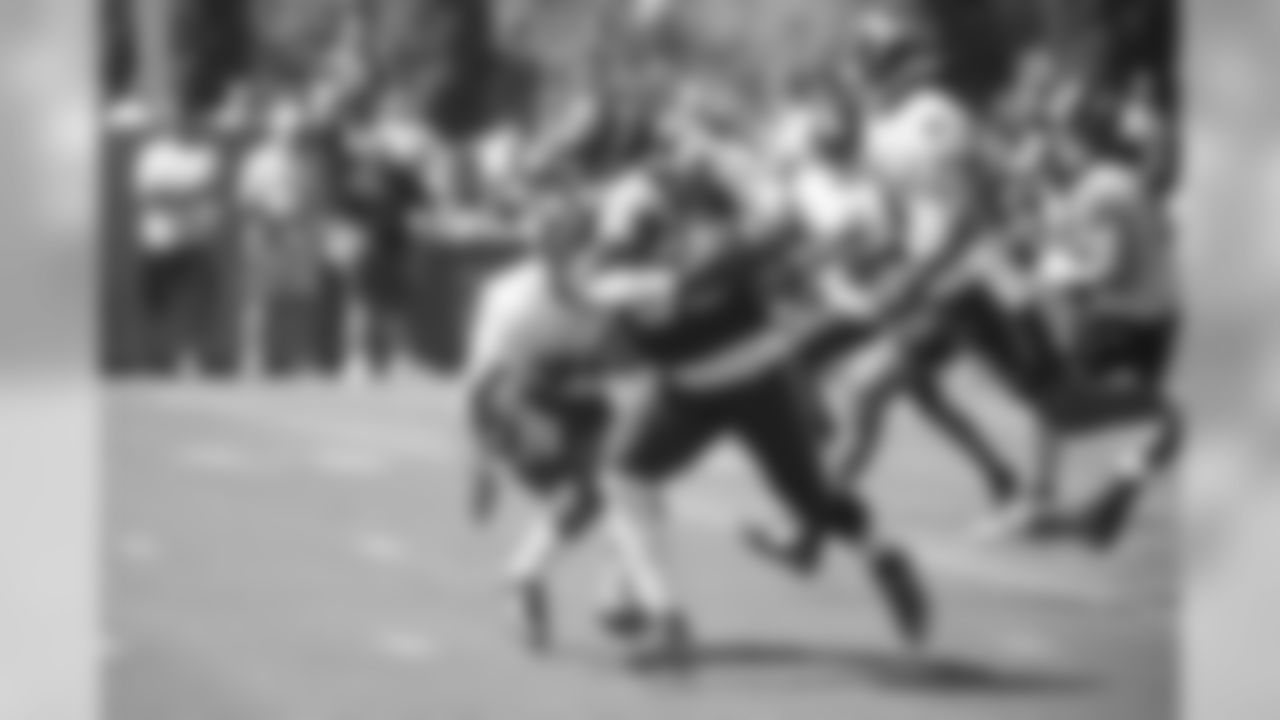
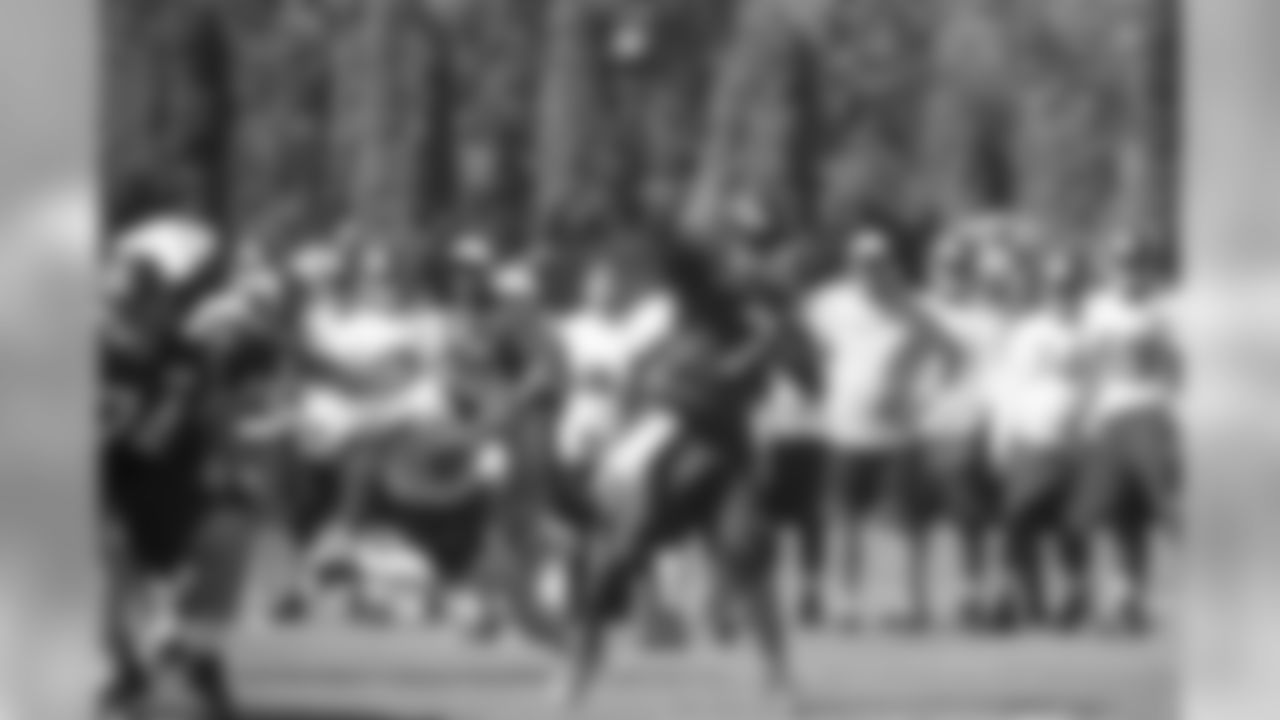
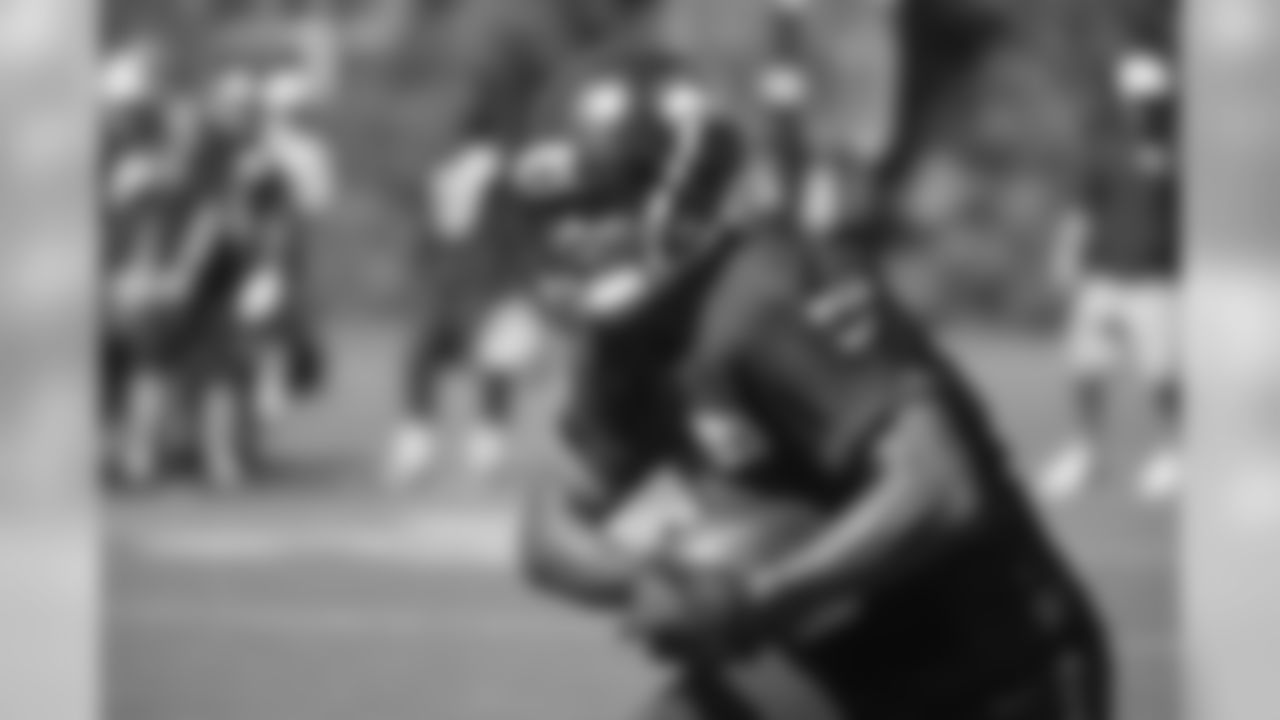
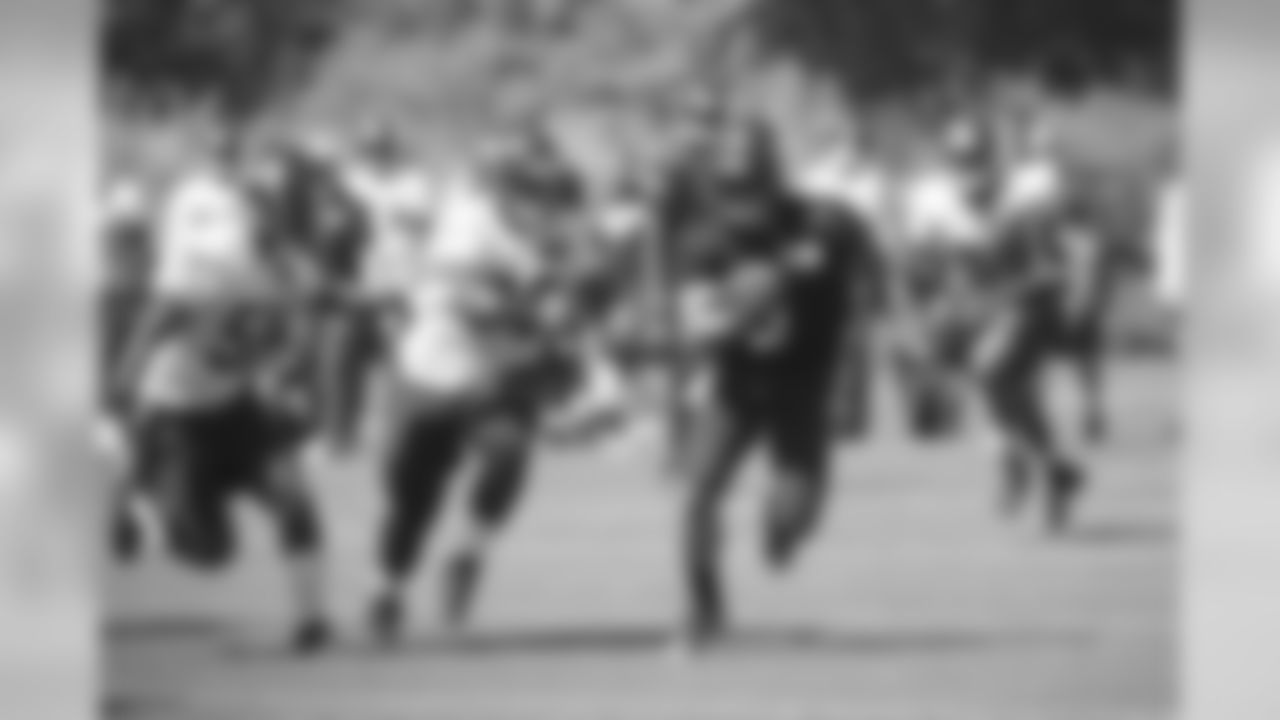
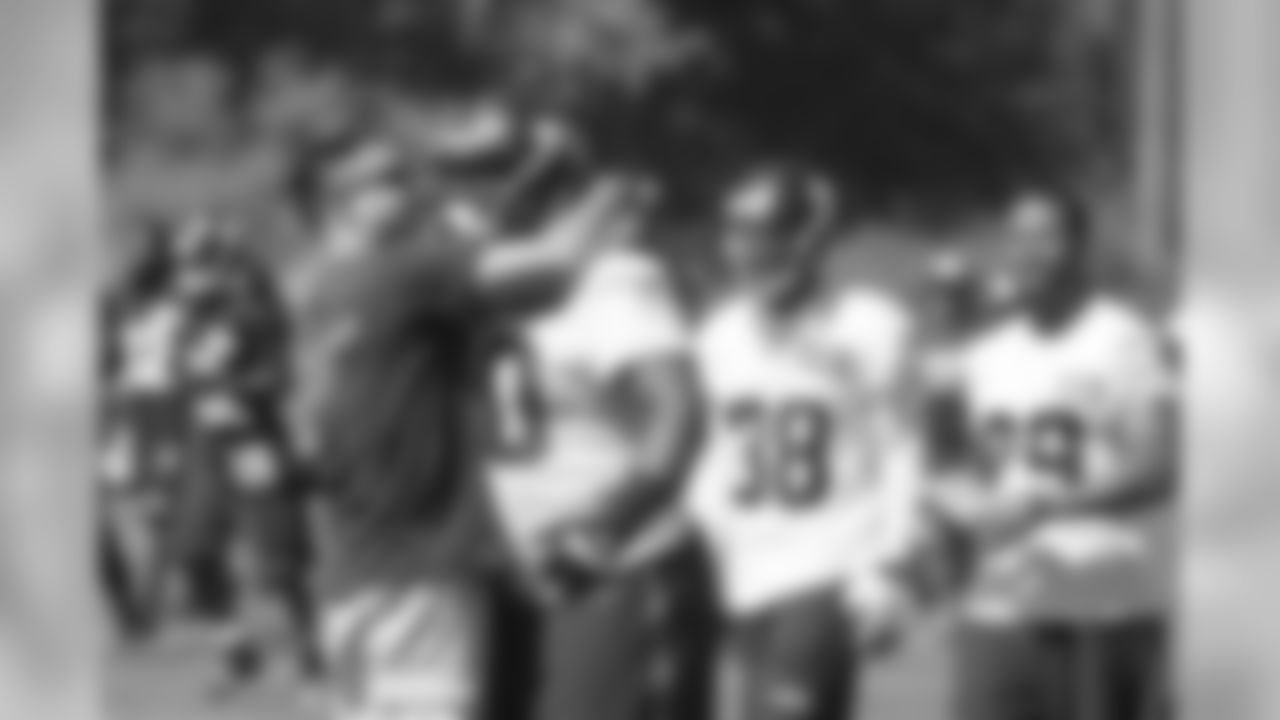


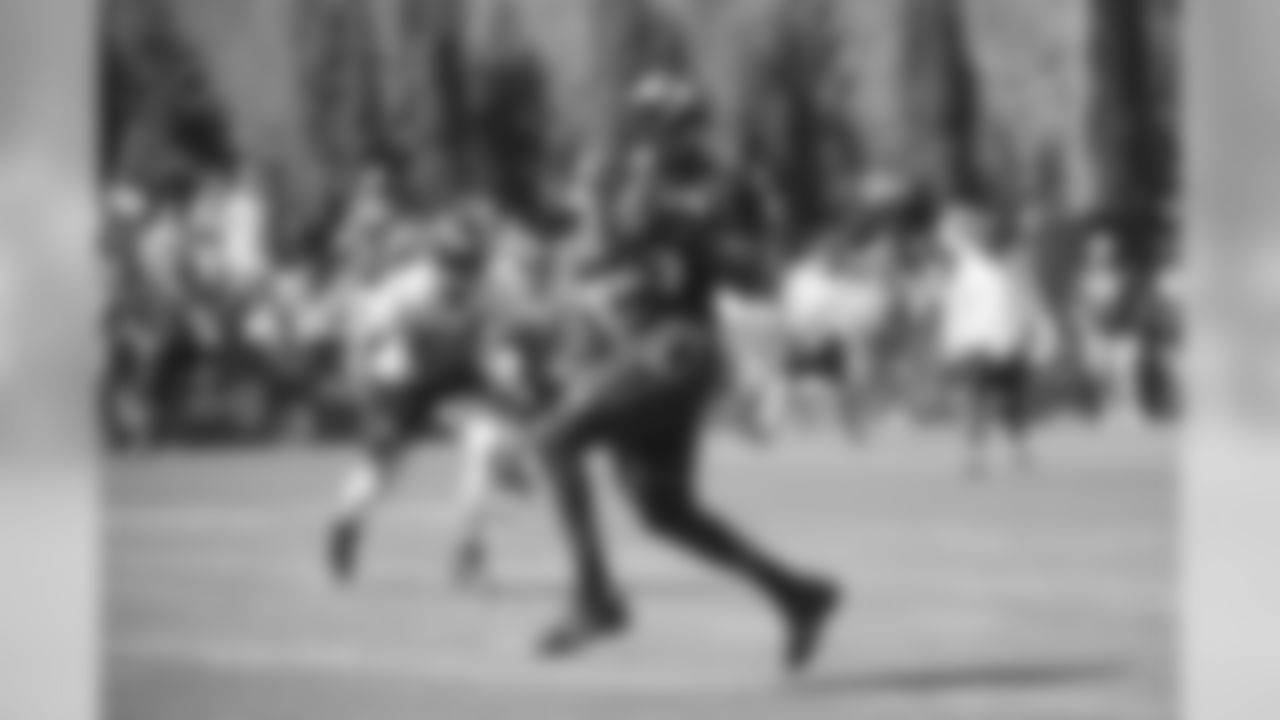

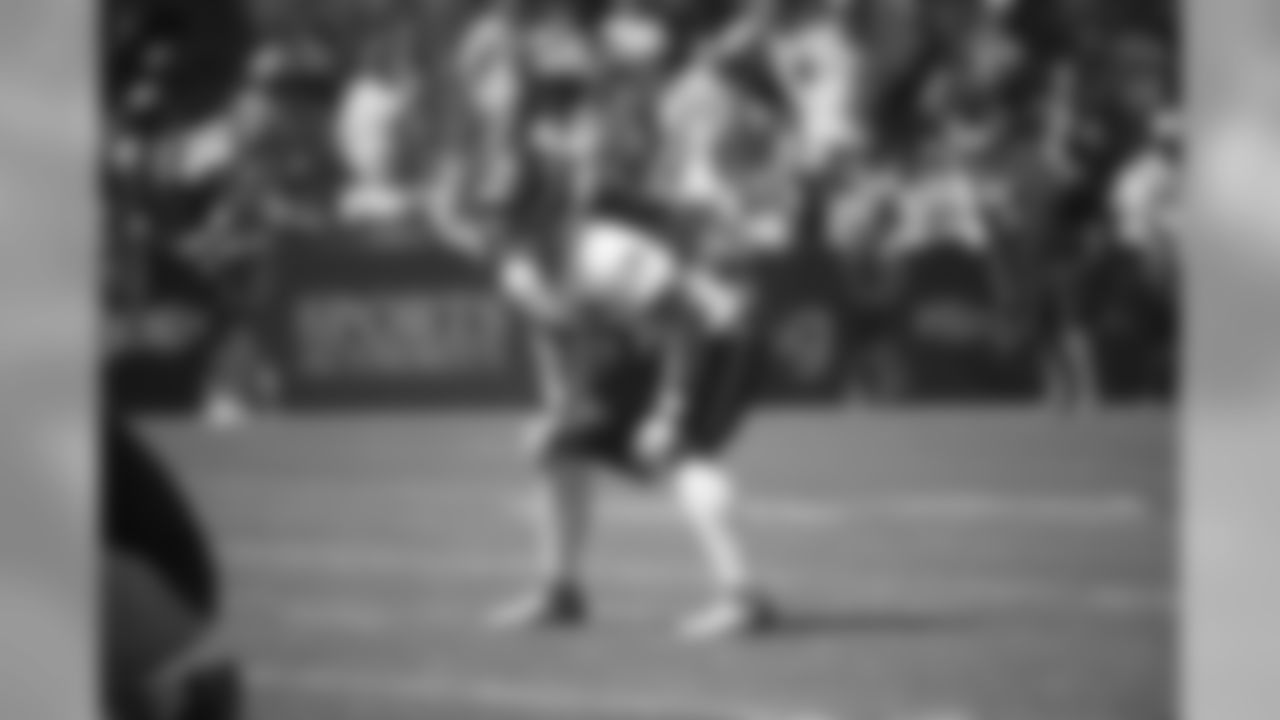
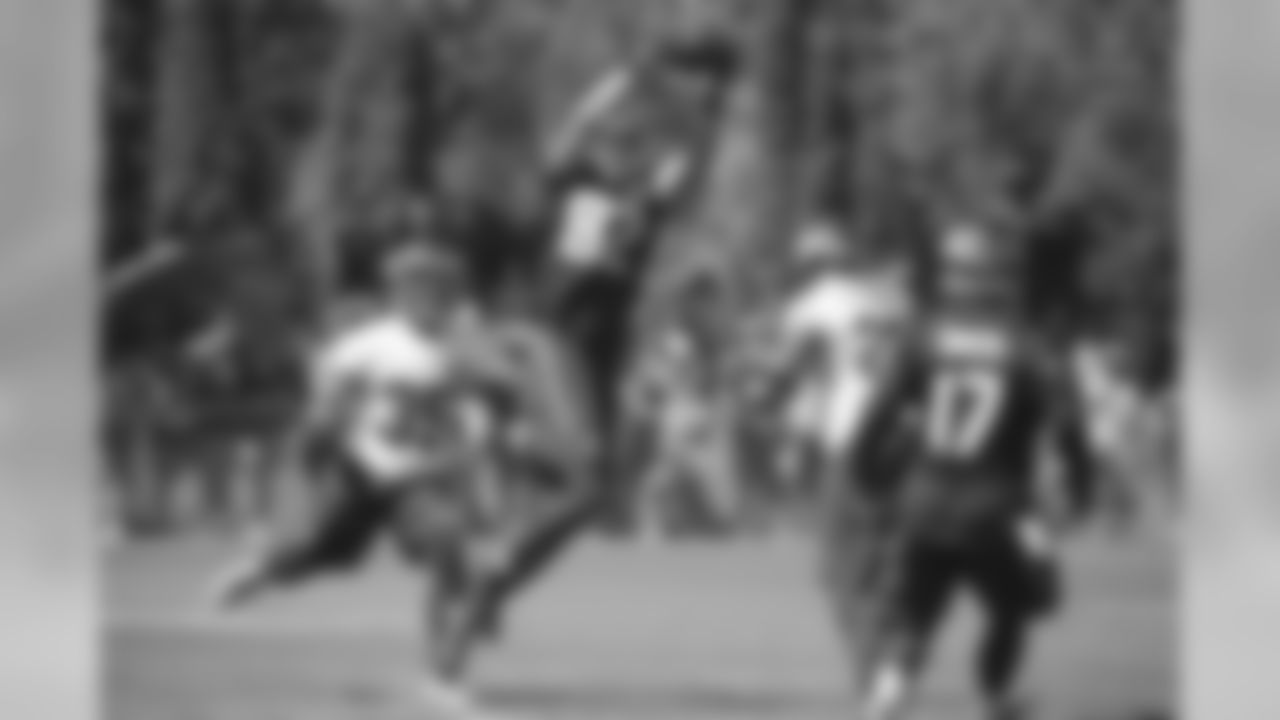
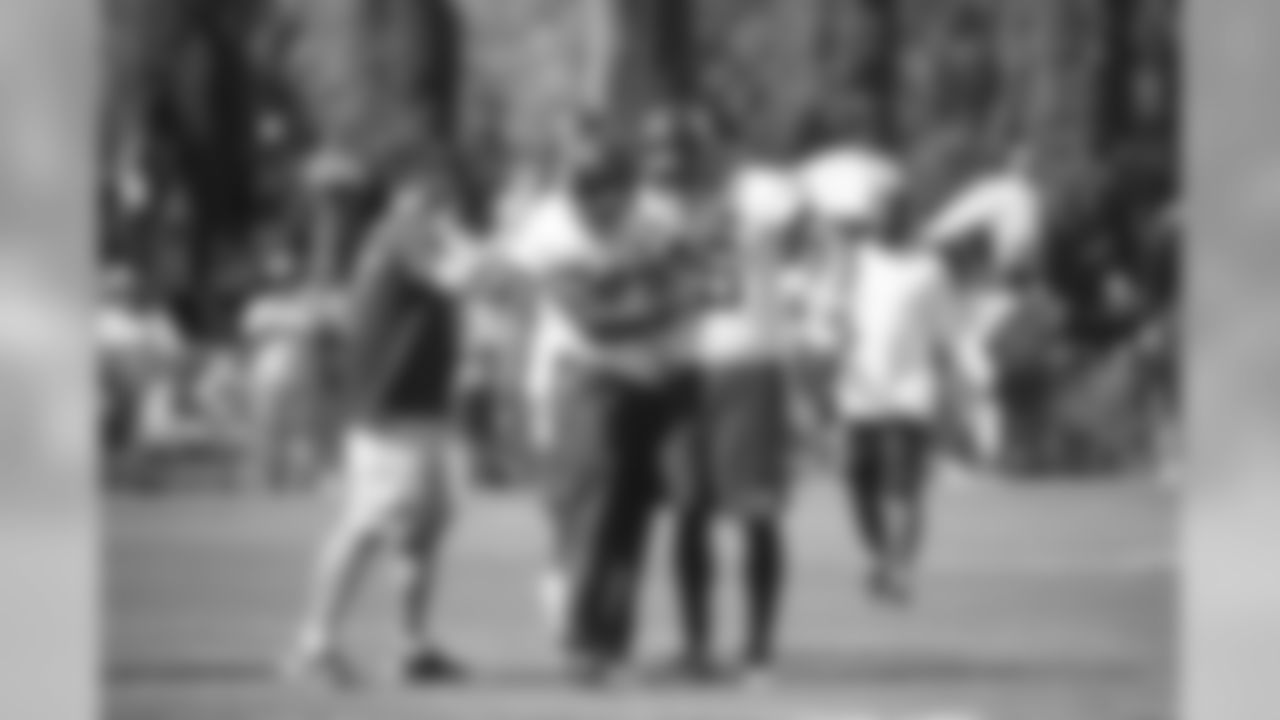

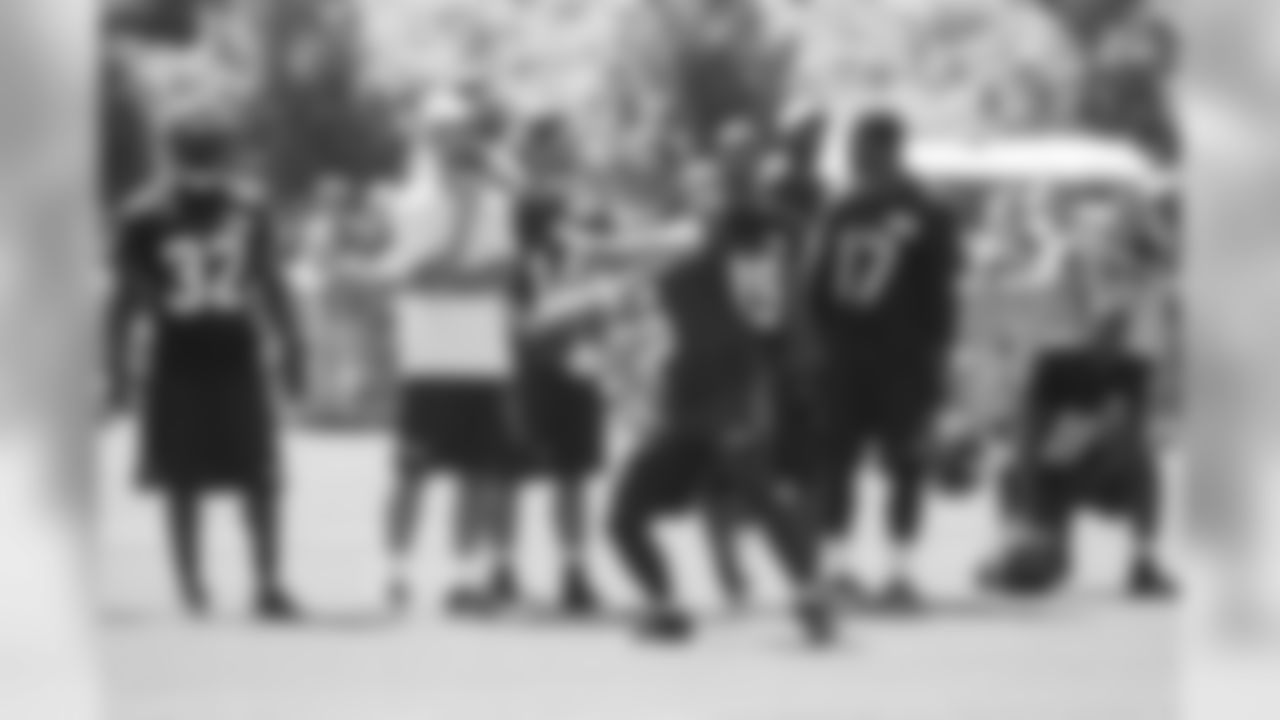

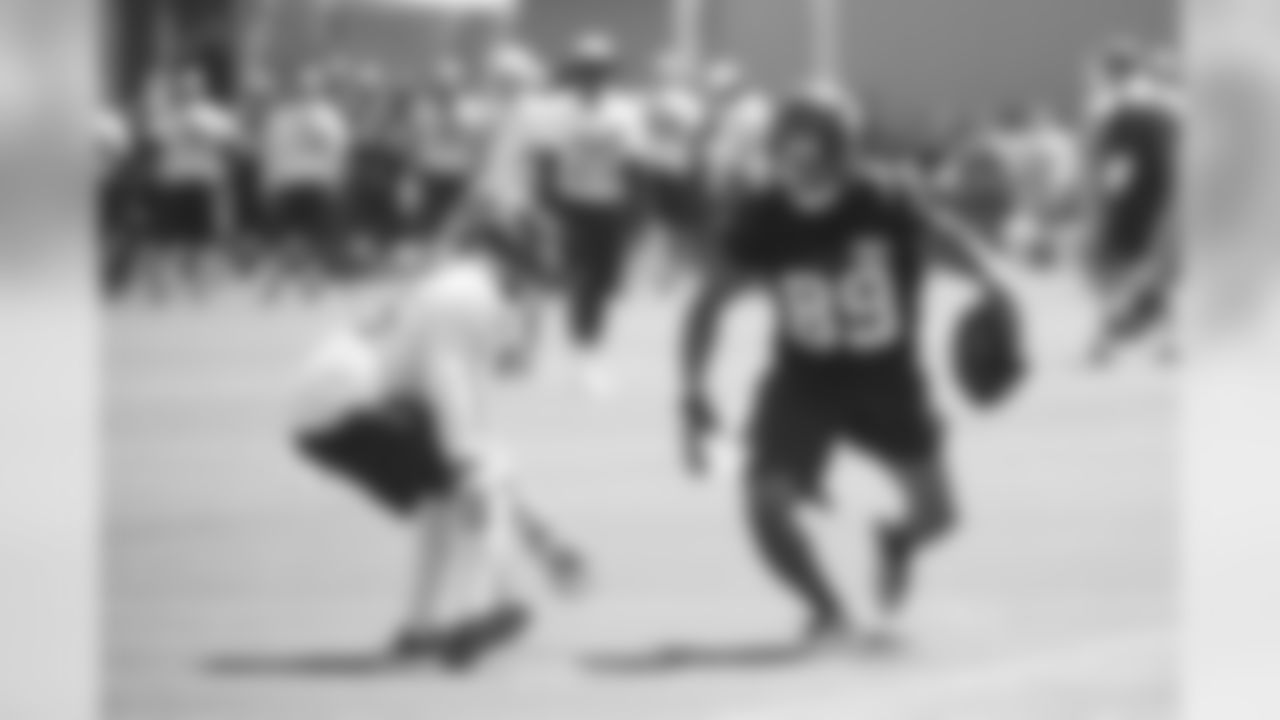

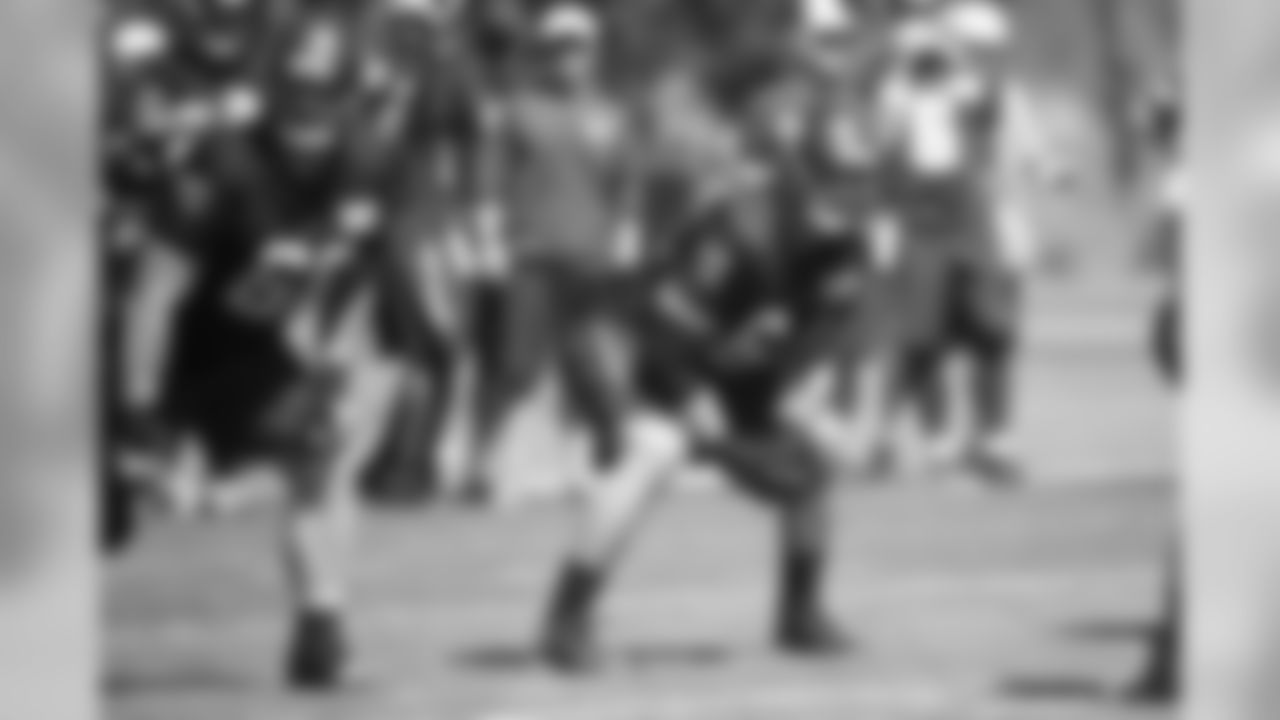
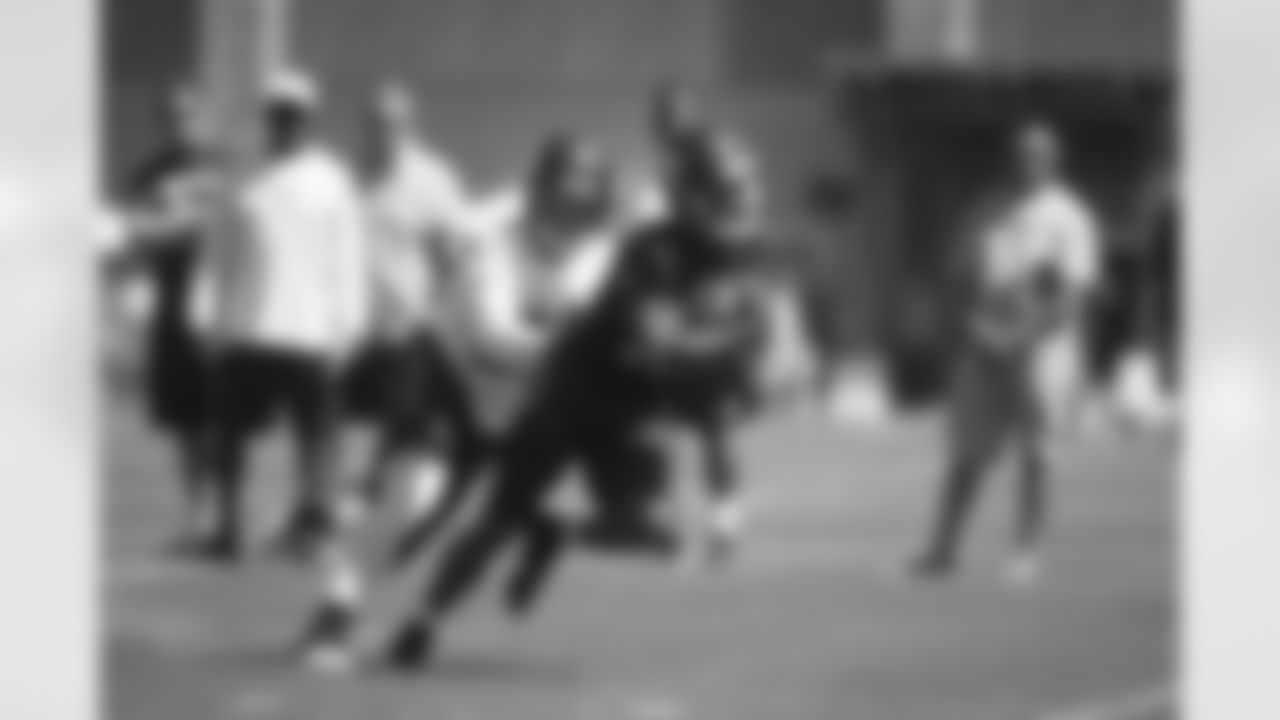
SS Keenan Lambert
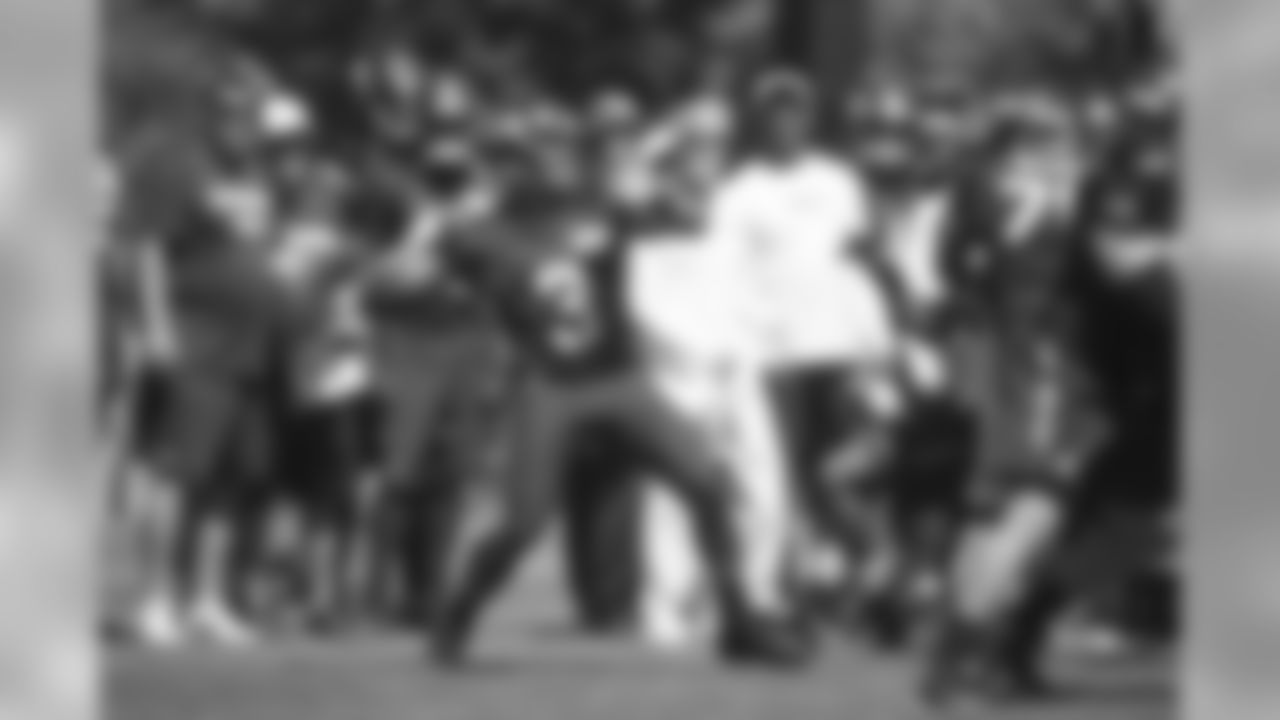
RB Cameron Marshall
